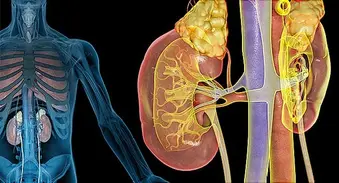How Well Do You Know Your Kidneys?


Question 1/12
What's their No. 1 job?
- Get rid of waste
- Keep you hydrated
- Control your temperature
Question 2/12
Each one is about the size of:
- A kidney bean
- A fist
- A football
Question 3/12
About how much blood do they filter every day?
- 1 gallon
- 50 quarts
- 200 quarts
Question 4/12
If this happens, something may be wrong with your kidneys:
- Constipation
- Peeing a lot
- A barky cough
Question 5/12
If your kidneys stop working, you might get:
- A kidney transplant
- Dialysis
- Either one
Question 6/12
A common cause of kidney disease is:
- Diabetes
- High blood pressure
- Both
Question 7/12
You can live with one kidney.
- True
- False
Question 8/12
A donated kidney can come from:
- A living person
- Someone who has just died
- Both
Question 9/12
Someone is added to the kidney transplant waiting list:
- Every 14 seconds
- Every 14 hours
- Every 14 days
Question 10/12
When you're dehydrated, your pee is usually:
- Clear
- Dark yellow
- Pinkish
Question 11/12
Kidney stones are about the size of a tennis ball.
- True
- False
Question 12/12
Taking pain meds won’t affect your kidneys.
- True
- False